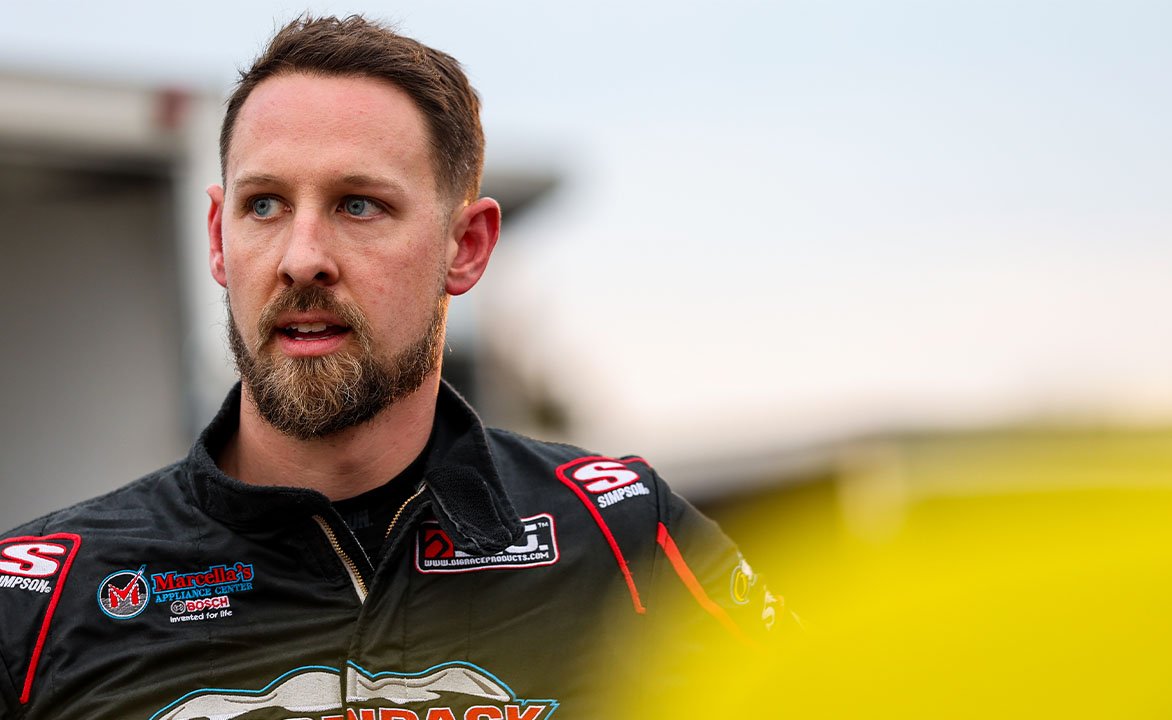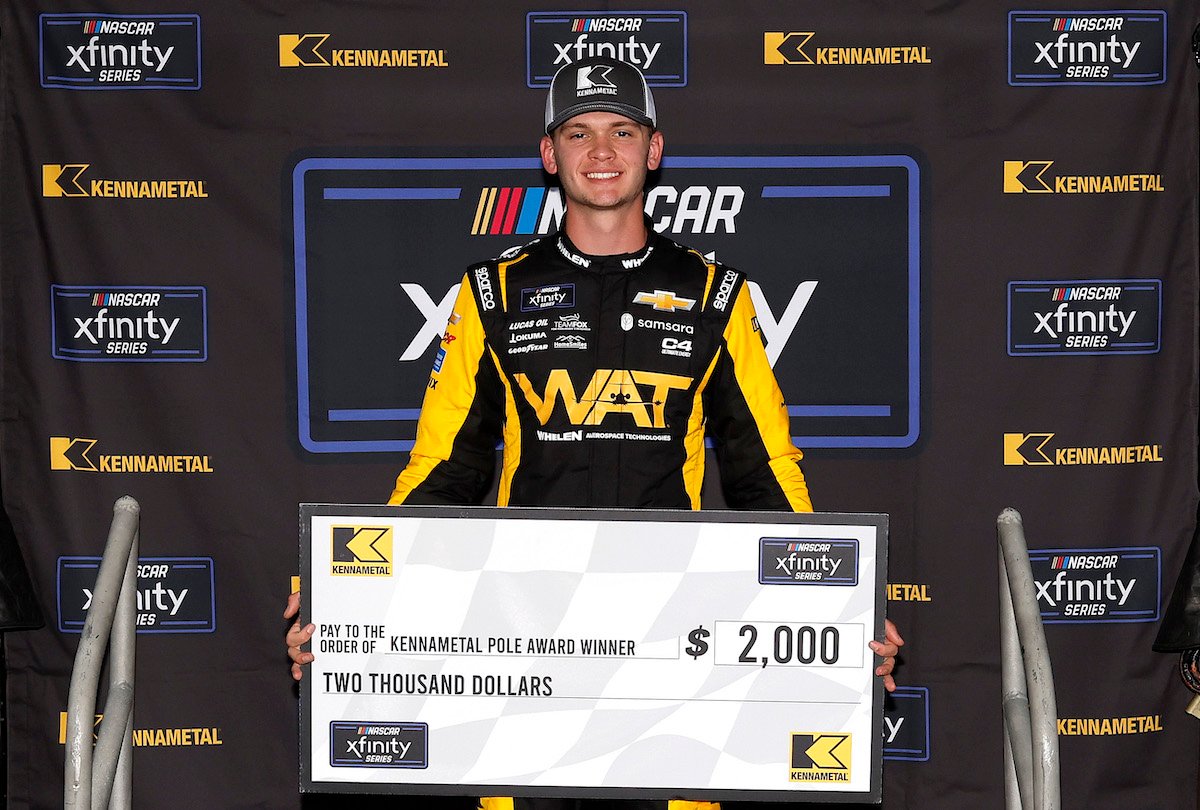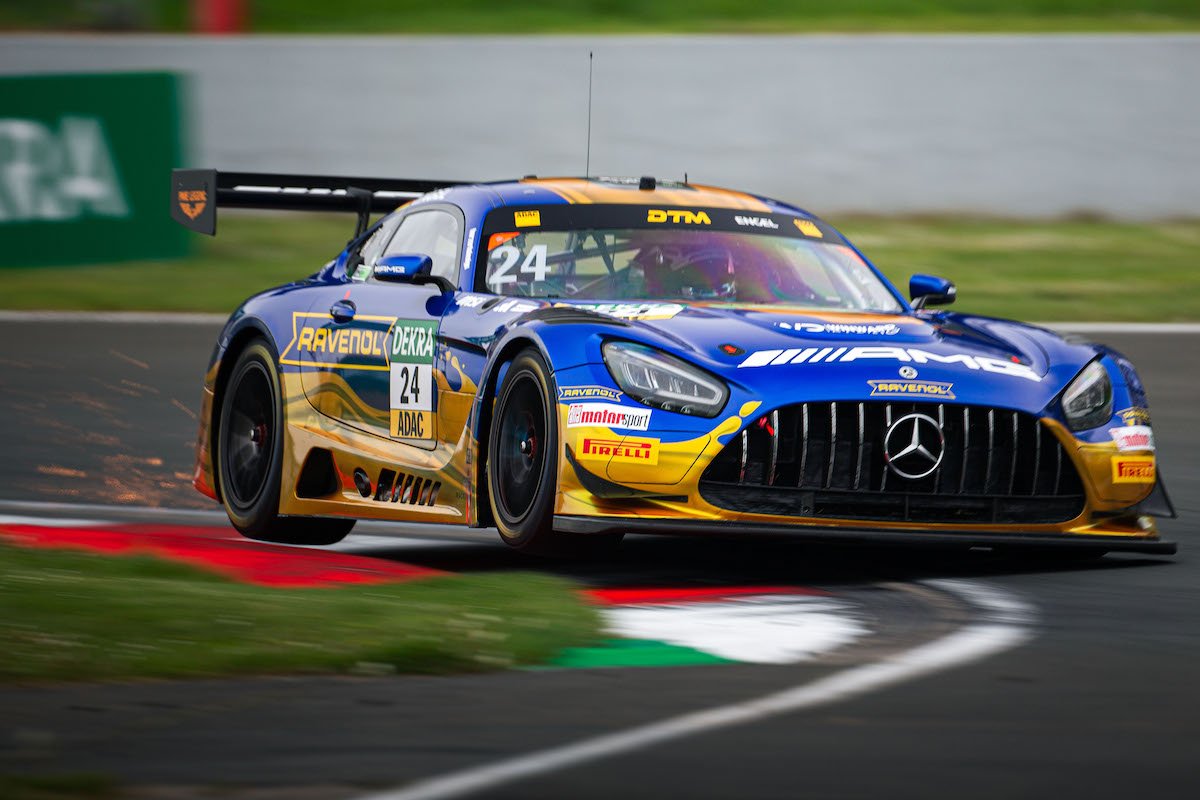Claire Dubbelman’s love for the pinnacle of motorsport started at an early age, thanks to her father, Huub, who spent almost two decades in automotive journalism before working as a PR manager for brands including Mercedes-Benz Netherlands. Dubbelman was four or five years old when she began watching Formula 1 in the early 1990s. “From the time I was little, my father would wake me up – at my own request, of course – to watch Formula 1. Even for the Australian Grand Prix, which was traditionally the season opener back then, we would get up early to watch the race together.”
“When I was about nine years old, I went with my father to Zandvoort for the Masters, which at the time was the event you had to attend,” Dubbelman continues. “After that, we started going to Zandvoort more often, for events like the Easter Races and the Pentecost Races. A day at the track became our favourite day out.”
A solid foundation
After secondary school, Dubbelman pursued a degree in international communication, which she completed by the age of 21. “After this, I thought to myself: if I’m going to work until I’m 65 – or even 67 it is in the Netherlands nowadays – I need to find something I really love doing. Otherwise, I won’t last. That’s how I ended up in the automotive world. I worked for seven months in the marketing department of Carver, which produces three-wheeled vehicles. Then an opportunity came up to work in Formula Renault. I joined an agency that represented Renault Sport in the Northern European championships. That was my start in motorsport.”
Working in Formula Renault gave Dubbelman a solid foundation for the rest of her career. “One major advantage of where I started in motorsport was that I had to do a wide range of tasks. Back then, we organised the entire Formula Renault Northern European Championship with just three people. When I was asked what I did exactly, I used to say: ‘everything that doesn’t involve a screwdriver!'”
She handled everything from arranging the trophies, writing press releases, compiling the entry lists, maintaining the sporting regulations, and booking hotels. “And I sat next to the Race Director, because I was the one who communicated all of the decisions to the teams over the radio. That was part of my role.” That’s how she first came into contact with race control and sporting regulations. “And ultimately, that’s what interested me most.”
Working for the FIA
Her first working experience with the FIA was a freelance job: in 2012 and 2013, she served as the FIA Media Delegate for the Formula 3 Euro Series, which then transitioned into the FIA Formula 3 European Championship.”That’s how I got on the radar for a permanent position,” Dubbelman shared. She secured a full-time role at the FIA in 2017 as Championship Manager, overseeing the junior series including Formula 2 and Formula 3. In the second half of 2022, she started working as a Race Control Operator in Formula 1, ensuring the Race Director’s decisions were executed through the FIA systems. She worked a full season in that capacity in 2023, before being asked for the Deputy Race Director role in 2024.
“That means I moved one seat to the left,” says Dubbelman about her most recent promotion. “Where I previously operated the software systems, I now have a much more executive role. Essentially, I’m the one sending the safety car onto the track and directing the medical services.” Additionally, Dubbelman is Sporting Manager at the FIA. “As Sporting Manager, I support the FIA Sporting Director in coordinating various matters. For example, the Super Licence Working Group falls under my responsibility, and I play a supporting role in the meetings of the Sporting Advisory Committee, which maintains and amends the sporting regulations. In short, it’s about everything needed on the regulatory side to keep the championship running.”
Away from the track, she also spends a lot of time preparing for Grands Prix. “There are three of us in the Sporting Department: Tim Malyon is the Sporting Director, Rui Marques is the Race Director, and I am the Deputy Race Director. The three of us are responsible for the entire sporting side of F1, which is quite intense.”

Lando Norris, McLaren achter de safety car
Foto door: Glenn Dunbar / Motorsport Images
FIA Race Director Super Licence
As of this year, Dubbelman holds an FIA Race Director Super Licence, which means she is authorised to take on the role of Race Director at Grands Prix. “This year, the FIA decided that anyone who can make decisions impacting the race must have this licence. So whereas a Deputy Race Director in the past didn’t necessarily hold a licence, I received one this year,” says Dubbelman. “It also means that, should anything happen to Rui – positive or negative – I could step in.” The license was granted to her based on her competence. There is no exam for it. “Receiving that document is more of a confirmation that I am qualified to perform the role of Deputy Race Director.”
Dubbelman is the first Dutch national, the first woman, and, at 38 years old, the youngest person ever to receive the FIA Race Director Super Licence. She particularly values the second aspect. “The fact that so few women are available for a position like this shows how difficult it is, how much you have to sacrifice, and how much perseverance it takes to get here. I’m very proud to have achieved this as the first woman.” She also finds it very special to be the first Dutch person to achieve this. “We’re a small country, but we have a big presence in motorsport. So for me to be the first Dutch person to do this, that’s something I’m very proud of.”
More women at the table?
At the end of 2023, Dubbelman said that she was often the only woman at the table, but today, the situation in Formula 1 is improving. “Yes, but slowly. For instance, during the drivers’ briefing, where FIA and FOM representatives, team managers, sporting directors, and the F1 drivers are present, nine times out of ten I’m still the only woman in the room. I don’t want to say it’s difficult, but it is confronting – and sometimes it hurts a little. We’ve come a long way in many areas of the sport, but if you’re still the only woman among fifty people in a room… It shows there’s still a long road ahead.”
However, within the FIA itself, Dubbelman notices a positive shift. “Within our team at the FIA, we are seeing more women, and more women in important roles. When I first joined the FIA, there were a lot of women, but mainly in administrative positions. Those roles are important too – I don’t want to take anything away from that – but out in the field, women were much less visible. Now, if you look at the FIA, you see a very different picture. We have women across all departments. We have a female scrutineer in our technical team, our head of operations is a woman, our starter is a woman, and our head of ceremonies is a woman. These are all very visible roles. I’m actually quite proud that the FIA has achieved good female representation across so many different areas.”

Claire Dubbelman, FIA F1 Race Control Operator
Foto door: Michael Potts / Motorsport Images
Also in Race Control, Dubbelman is no longer the only woman. “There are four roles to be filled for each F1 race weekend. We have Tim, the Sporting Director, who mainly deals with the teams; Rui, the Race Director and me, as the Deputy Race Director. And then there’s the Race Control Operator, the role I previously held. There are now two people rotating in that operator role, and one of them is a woman.”
First female Race Director?
Dubbelman has previously stated that her ambition is to one day become a Race Director in Formula 1, but only under her own terms and in a way that feels comfortable for her. So is that feeling more present now than a few years ago? “Yes. We work so much more as a team now compared to the past. For decades, we had a system where basically one person made all of the decisions. Under Michael Masi and Niels Wittich, it gradually became more of a team effort. And with Rui’s arrival, we’ve taken another step forward.”
“I’ve always said it should be less about one individual and more about teamwork,” Dubbelman adds. “That would make the role of Race Director much more comfortable for me, and it would also feel much more natural to me. In that respect, we’ve now reached a point where I’m more open to the idea of one day becoming Race Director than I was before.”
“I still think I have a lot of growing to do. And I would really like to have the time to develop before the subject of becoming Race Director even comes up. When I accepted my current role, I said I would like to have at least three years to develop properly and earn the respect of the people I work with. In F1 – and this is less about being a woman and more about being the right person – you have to prove yourself. And I would like to have the chance to prove myself before anyone considers asking me to step into the number one role.”
Further growth
One area where Dubbelman wants to continue developing is circuit homologation. “That’s something I’ve put on my list for this year. I’d like to know more about it. I deal with it every day, so it’s certainly not that I have no basic knowledge about this – I actually have quite a bit. But what I’m looking for is a deeper understanding of, for instance, when a fence should be replaced and when it can still be repaired. And when a Tecpro barrier is too damaged to leave in place and when you can still fix it with tape. In these cases, it’s about small nuances.”
“It’s not that I know nothing about it, but these are situations that can make the difference between a Safety Car and a red flag. You can imagine that replacing a Tecpro barrier takes quite a bit of time, so potentially we would red flag the race for that. But if you can fix it quickly, you might be able to continue under a Safety Car,” Dubbelman clarifies. “These are the kinds of things I want to gain more knowledge about. And once I reach a level where I have full faith in my expertise in this area, I think I would also have the confidence to be the number one, instead of the number two.”

FIA F1 Race Control
Foto door: Michael Potts / Motorsport Images
Dubbelman emphasizes she would happily stay in the Deputy Race Director for many years to come. “But there are no guarantees in Formula 1, I’m fully aware of that.” She also acknowledges the possibility that she could be promoted to the role of Race Director earlier than she’d prefer. “I can say what I would like, but that doesn’t mean anyone has to listen to me.”
However, she is determined to avoid being thrown in at the deep end. “That’s always been my fear,” Dubbelman admits. “But the way we work together now gives me much more confidence that, one day, I could be ready. Still, I feel there’s another step I need to take before I’m truly ready.”
In this article
Be the first to know and subscribe for real-time news email updates on these topics
Subscribe to news alerts














Leave a Reply